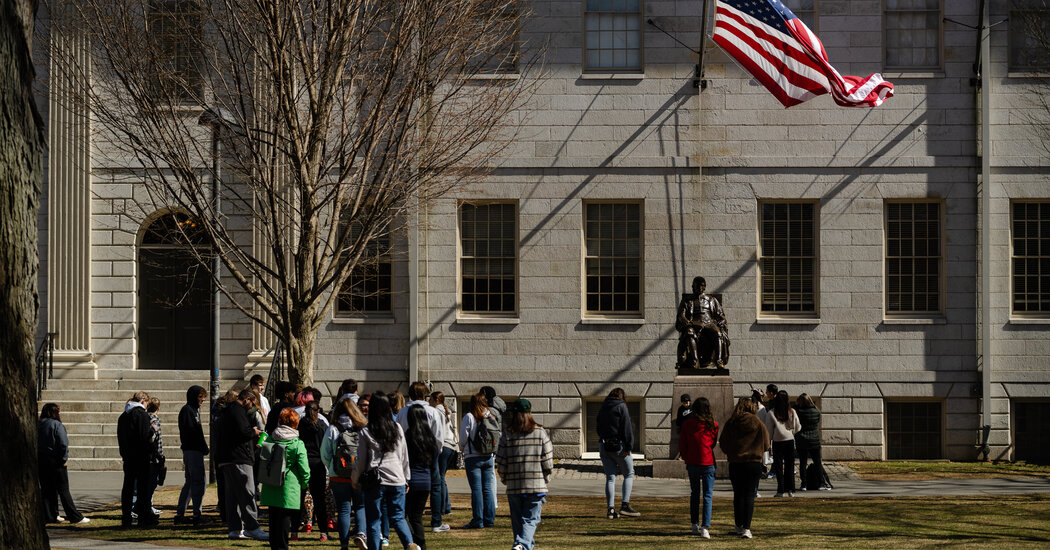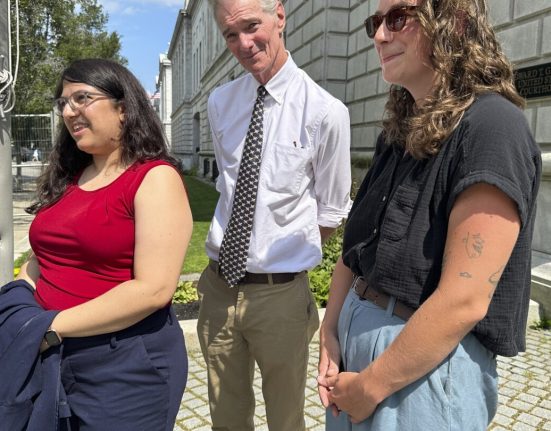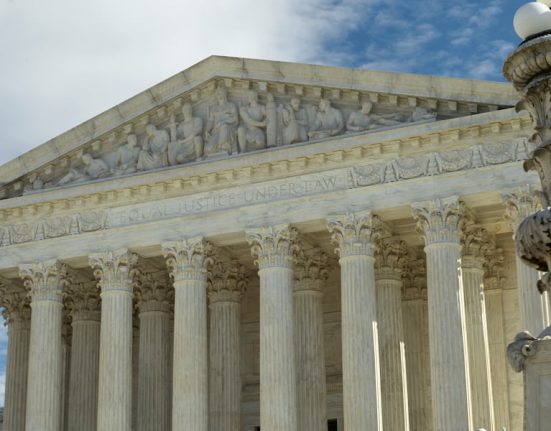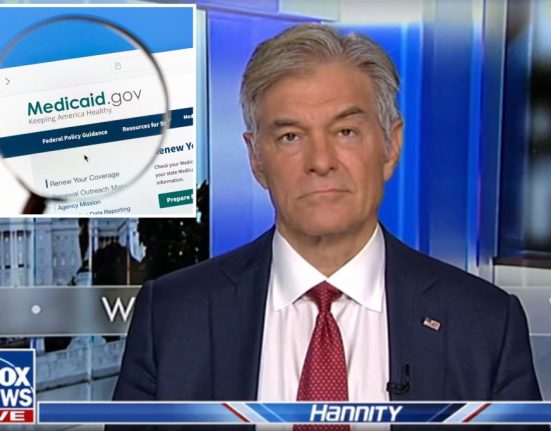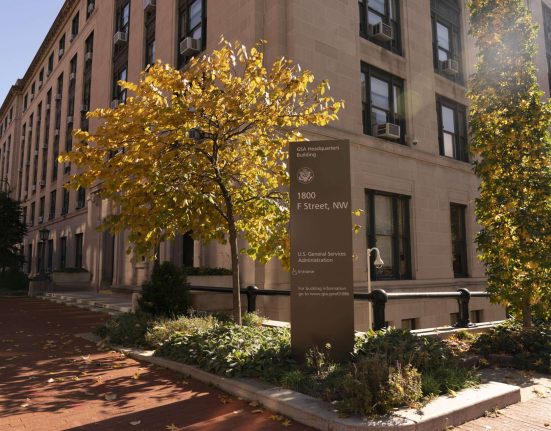The Trump administration sent Harvard a list of demands on Thursday that would have to be met to end a government review of $9 billion the school receives in federal funding.
The government announced the review earlier this week, which threatened to cancel all or some of the money as part of its campaign against what it views as unchecked antisemitism on campuses.
The conditions largely follow the playbook the Trump administration used to force Columbia University to comply with its demands last month, after canceling $400 million of that school’s federal grants and contracts. In both instances, the government asked Harvard and Columbia to impose bans, with few exemptions, on masking.
Pro-Palestinian students often used masks during protests against the war in Gaza to obscure their identities after many said they were harassed online when their personal information was revealed.
The Trump administration also pressured the universities to intensify efforts to hold student groups “accountable,” cease admissions practices based on race, color or national origin and revamp policies on campus protests.
Harvard would also be required to “commit to full cooperation” with the Department of Homeland Security, the agency that enforces immigration policies, including deportations.
Although the Trump administration did not insist that a specific academic department be put under outside oversight, also known as “receivership,” as it did at Columbia, it said that Harvard’s “programs and departments that fuel antisemitic harassment must be reviewed and necessary changes made to address bias, improve viewpoint diversity, and end ideological capture.”
Earlier on Thursday, White House officials said the administration also intended to block $510 million in federal contracts and grants for Brown University, making it the fifth university known to face a potentially dire loss of federal funding.
Like many of its Ivy League peers, Brown was the site of clashes over the war in Gaza. But it was also one of a small number of universities that made deals with students to end their protest encampments in the spring, agreements that came under criticism for being too soft on students.
A spokesman for Harvard confirmed that the university received its letter on Thursday, but made no additional comment. The letter was first reported by Fox News.
The Trump administration’s letter said that Harvard had “fundamentally failed to protect American students and faculty from antisemitic violence” and that it expected “immediate cooperation in implementing these critical reforms.”
“U.S. taxpayers invest enormously in U.S. colleges and universities, including Harvard University,” according to the letter. “These funds are an investment and, like any investment, are based on the recipient’s performance, not owed as a matter of custom or right.”
The letter was signed by Josh Gruenbaum, the commissioner of the federal acquisition service in the General Services Administration; Sean Keveney, the acting general counsel at the Health and Human Services Department; and Thomas E. Wheeler, the acting general counsel at the Department of Education.
On Monday, Alan Garber, the president of Harvard, said that the university had spent “considerable effort” during the past 15 months addressing antisemitism, adding that there was still more work to do.
He said that Harvard would work with the administration, but warned that canceling federal funding would “halt life-saving research and imperil important scientific research and innovation.”
“Much is at stake here,” Dr. Garber wrote. “In longstanding partnership with the federal government, we have launched and nurtured pathbreaking research that has made countless people healthier and safer, more curious and more knowledgeable, improving their lives, their communities, and our world.”
The administration’s crusade against elite institutions of higher education has included the creation of a task force on antisemitism that targeted 10 colleges, including Harvard, the world’s wealthiest university.
The Trump administration announced last month that its review at Harvard would include a look at about $9 billion in federal contracts and multiyear grant commitments with the university and its affiliates, a group that appeared to include several Boston-area hospitals.
Harvard had announced a hiring freeze in early March, citing the uncertainty created by Mr. Trump’s threats to continue to slash funding for higher education, even as both public and private universities around the country have been deeply affected by Trump funding cuts.
Ryan Enos, the co-author of a faculty letter calling on Harvard to oppose the government’s attacks on higher education, said the demands were “authoritarian extortion, not serious policy goals” in a message on Thursday. He urged Harvard to reject them.
In the following weeks, the Trump administration announced actions against three more universities. That included a pause of $175 million in funding to the University of Pennsylvania and the suspension of dozens of grants to Princeton.
Alan Blinder and Vimal Patel contributed reporting.

